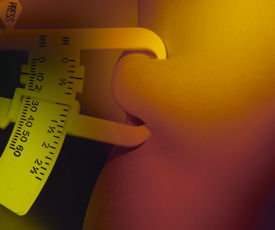Guidelines on chest pain therapy; antidepressants ranked
Joint criteria offer a practical tool to help physicians choose between therapy and intervention for chest pain, and other news.
Criteria guide chest pain therapy, interventions
Joint criteria offer a practical tool to help physicians choose between therapy and intervention for chest pain, criteria that focus on cardiac treatment rather than on diagnostic testing.
“Appropriate Criteria for Coronary Revascularization,” a document created jointly by several medical groups, presents information on the type of patients physicians see on a daily basis, as opposed to those included in the clinical trials used to form guidelines. It is available online.
Appropriate use criteria also present easily understood clinical scenarios that characterize patients according to:
- symptom severity and type,
- how much cholesterol plaque has built up and in which arteries,
- ischemia, and
- whether the patient is already taking the right heart medications in the right dosages.
Revascularization was considered appropriate if the expected improvements in survival, symptoms, functional status and/or quality of life outweighed the possible risks, according to the Society for Cardiovascular Angiography and Interventions (SCAI). In most cases, the panel considered revascularization as either bypass surgery or percutaneous coronary intervention. Because evidence supported either procedure for patients with advanced coronary disease, each revascularization method was independently rated.
Antidepressants ranked
Escitalopram (Lexapro) and sertraline (Zoloft) are the most effective and well-accepted of the newer generation of antidepressants, a study found.
Researchers reviewed 117 randomized controlled trials from 1991-2007 that studied the effects of antidepressants in 25,928 patients with major depression. Sixty-four percent of patients were women; the mean duration of studies was 8.1 weeks. The 12 drugs tested were bupropion (Wellbutrin), citalopram (Celexa), duloxetine (Cymbalta), escitalopram, fluoxetine (Prozac), fluvoxamine (Luvox), milnacipran (Ixel), mirtazapine (Remeron), paroxetine (Paxil), reboxetine (Edronax), sertraline, and venlafaxine (Effexor). The main outcomes were the proportion of patients who responded to (effectiveness) or dropped out (acceptability) of the treatment. The study was published in the Jan. 29 online issue of The Lancet.
Escitalopram and sertraline were the most accepted by patients, resulting in fewer treatment discontinuations than duloxetine, fluvoxamine, paroxetine, reboxetine, and venlafaxine. Sertraline was also 30% more effective than duloxetine, 27% more effective than fluvoxamine, 25% more effective than fluoxetine, 22% more effective than paroxetine, and 85% more effective than reboxetine. Escilatopram was 33% more effective than duloxetine, 32% more than fluoxetine, 35% more than fluvoxamine, 30% more than paroxetine, and 95% more than reboxetine. Mirtazapine and venlafaxine scored high on effectiveness, but were less acceptable to patients than escitalopram and sertraline.
Escitalopram and sertraline may be the best options for treating moderate to severe depression because they balance efficacy and acceptability, the study's authors concluded. While sertraline may be preferable because it often costs less, that assertion hasn't been tested by a full economic model, they said. The study, which received no funding from drug manufacturers, is limited in that its findings apply only to treatment for eight weeks and it did not specifically compare side effects of the various drugs.
Another study concluded that escitalopram (Lexapro) may help relieve symptoms of generalized anxiety disorder in older adults.
Researchers randomized 177 people aged 60 years and older with generalized anxiety disorder to either 10-20 mg/day of escitalopram or placebo for 12 weeks. Patients were recruited from primary care practices or specialty clinics in Pittsburgh, Pa. Outcomes included cumulative response on several scales including the Clinical Global Impressions-Improvement scale and the Hamilton Anxiety Rating Scale. The study was published in the Jan. 21 issue of the Journal of the American Medical Association.
Sixty-nine percent of people taking escitalopram saw their anxiety levels drop compared to 51% of patients taking placebo. A conservative intention-to-treat (ITT) analysis didn't show a difference in cumulative response rate between groups, however. As a secondary finding, hypertensive patients taking escitalopram saw blood pressure decrease significantly more than patients on placebo. This was the first large-scale study to examine the effect of a selective serotonin reuptake inhibitor (SSRI) on anxiety in older adults.
Diet, exercise improve urinary incontinence
Weight loss can improve urinary incontinence in overweight and obese women, according to a recent study.
In the randomized controlled trial, researchers assigned 338 women to either an intensive six-month weight-loss program that included diet, exercise and behavior modification or a structured education program. At the start of the study, the women had BMI of 25 or more and at least 10 urinary-incontinence episodes per week.

In the intervention group, women met weekly with nutrition and exercise experts and were put on a reduced-calorie diet, which included sample meal plans and vouchers for meal-replacement products. After six months, the intervention group had a mean weight loss of 8% compared with 1.6% in the control group. Their weekly number of incontinence episodes (measured by voiding diaries) had decreased by 47% compared with a 28% drop among controls.
When broken down by type of incontinence, the intervention group was found to have a significantly greater decrease in stress incontinence, but not urge incontinence. More women in the intervention group reached the study's standard of clinically relevant improvement, in that they had a 70% or greater reduction in overall incontinence episodes. The study was published in the Jan. 29 New England Journal of Medicine.
The researchers concluded that decreases in urinary incontinence may be another of the many health improvements associated with moderate weight loss. They suggested that clinicians consider weight reduction as a first-line therapy for overweight and obese women with incontinence.



